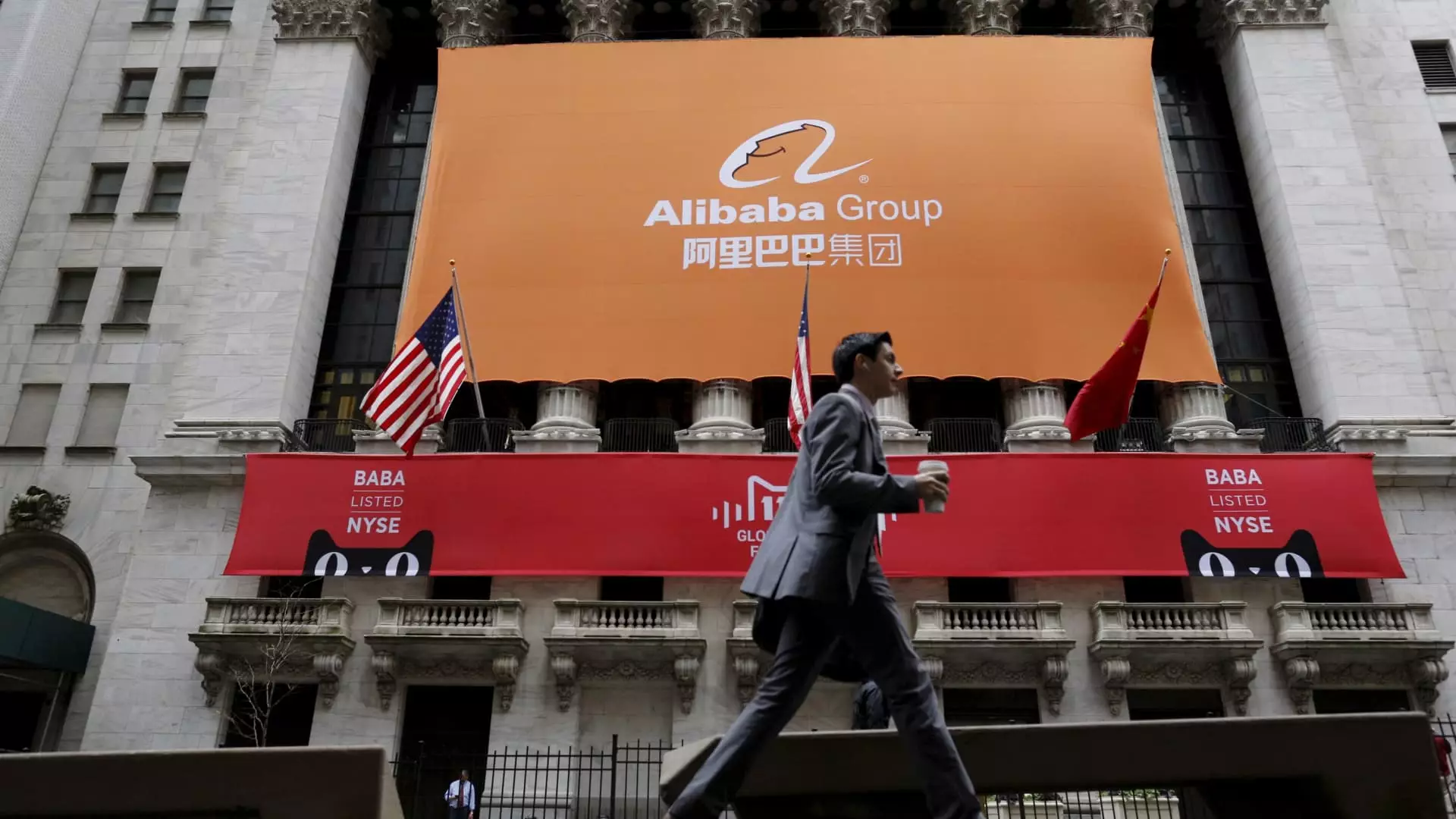Alibaba, the Chinese tech giant, has faced numerous challenges in the past year that have cast doubt on its future prospects. One significant setback was the company’s decision to cancel the public listing of its cloud computing unit, which had been a potential avenue for investors to capitalize on the growth of artificial intelligence (AI). This move was a blow to Alibaba’s ambitions in the AI space, especially as the technology was gaining momentum. Furthermore, Alibaba’s market value in the US dropped below that of its e-commerce competitor, Pinduoduo (PDD), signaling the struggles the company faced in an industry where it once stood out after its record-breaking IPO in 2014.
In addition to its business challenges, Alibaba has also become a poster child for China’s crackdown on internet tech companies. The company was slapped with a hefty fine of $2.8 billion in 2021 for alleged monopolistic behavior, a clear indication of the authorities’ tightening grip on the industry. These regulatory actions have undoubtedly added to the uncertainty surrounding Alibaba’s future prospects. Moreover, the company has also been impacted by the slowdown in China’s economic growth, further dampening its business performance.
The scrapped cloud IPO plans and the subsequent management shakeup serve as a reflection of more profound issues within Alibaba. The erosion of its market position, particularly in areas such as video and livestream, along with its response to competitors like Douyin, has contributed to the company’s decline. Additionally, Alibaba’s struggles to manage its disparate groups and contain the management turmoil have created a disorganized environment internally. This internal chaos has played a part in the overall mess that Alibaba finds itself in.
Alibaba faces mounting competition from emerging players in the Chinese market, such as Douyin and Pinduoduo. Douyin, a Chinese version of TikTok, has become a popular platform for livestream sales, posing a threat to Alibaba’s dominance. At the same time, Chinese consumers’ growing fondness for bargain hunting has driven them towards Pinduoduo, a platform known for its discounted deals. As a result, some employees have felt disillusioned by Alibaba’s size and bureaucracy, leading to personnel turnover and further compounding the company’s challenges.
Alibaba’s management has also faced significant disruptions and missteps over the past year. The sudden departure of Daniel Zhang, the former CEO of Alibaba Group and the acting head of the cloud business, exposed mismanagement on the cloud side of the company. This departure was unexpected and brought into question the effectiveness of Alibaba’s restructuring efforts. Furthermore, the cancellation of the cloud IPO plans has dashed employees’ hopes of cashing out on lucrative shares, undermining the company’s incentive mechanisms.
While Alibaba has been a dominant player in China’s cloud market, its position has become increasingly challenged. Canalys research shows that Alibaba remained the largest player in the cloud market in the third quarter, followed by Huawei and Tencent. However, Huawei is expected to gradually increase its market share, thanks to its strategic focus on building an ecosystem of experts and developers. In contrast, Alibaba and Tencent only started pursuing a similar strategy in 2023. This delayed approach might hinder Alibaba’s ability to compete effectively in a market heavily reliant on government and state-owned enterprises for growth.
Alibaba’s struggles in the cloud computing industry and its broader business challenges cast doubts on the company’s future trajectory. Internal issues, management turmoil, and fierce competition have all taken a toll on Alibaba’s market position and its ability to adapt to rapidly evolving market dynamics. The cancellation of the cloud IPO and the company’s eroding market value have eroded investor confidence. Going forward, Alibaba will need to address its internal problems, improve its strategic focus, and regain the trust of investors if it hopes to overcome these hurdles and regain its former glory in the tech industry.


Leave a Reply